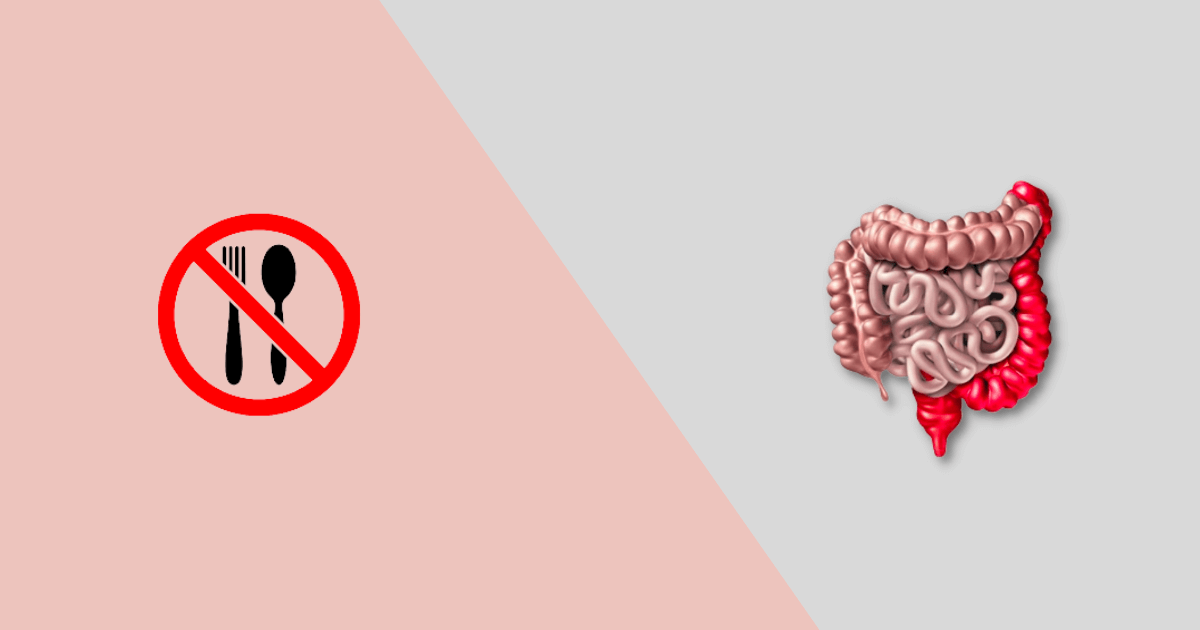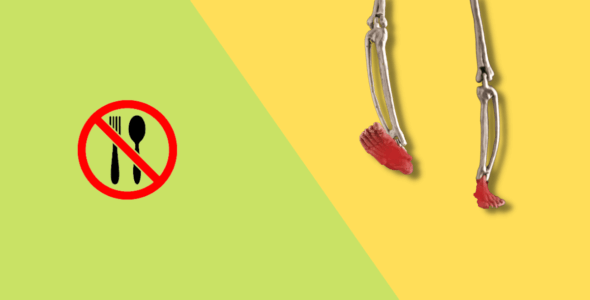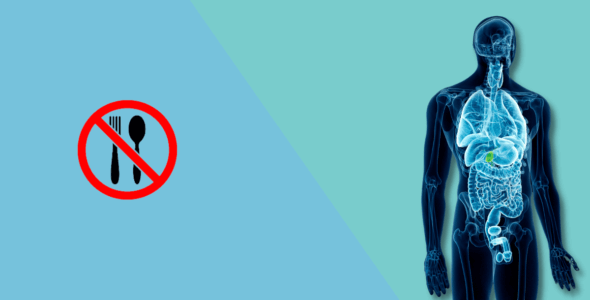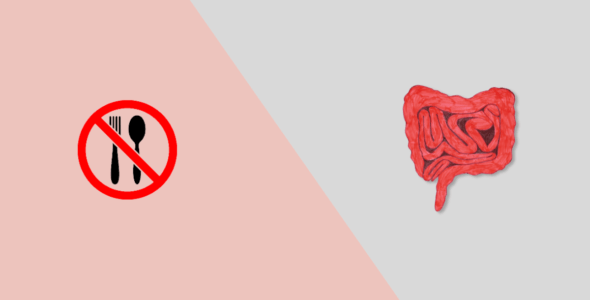What foods to avoid with ulcerative colitis
Table of contents
Ulcerative colitis is one of two types of inflammatory bowel disease (IBD). The other being Crohn’s disease. Ulcerative colitis is a long-term, inflammatory disease of the lower end of your digestive system. This includes the large bowel and rectum. What you eat and drink will not only affect your symptoms of ulcerative colitis but also how severe the symptoms will be.
Here we will look at what ulcerative colitis is, its symptoms, what foods trigger ulcerative colitis and so to avoid, as well as what foods you can eat, and treatments available to improve your quality of life.
What is ulcerative colitis?
Ulcerative colitis is a condition that causes inflammation and sores on the inner lining of your large intestine and rectum. The exact cause of this medical condition is not known but it is thought to be linked to certain environmental factors such as diet and lifestyle as well as genetic factors. A possible cause is your immune system attacking your digestive system.
Ulcerative colitis can cause symptoms such as abdominal pain, cramping, tiredness, and nausea. Your symptoms can be managed with what you eat, and by not eating certain foods you can reduce your flare-ups.
Even though no eating plan will completely prevent flare-ups, a good diet will help you manage your symptoms. You should be aware that as we are all unique and different, what changes in food and diet work for one individual may not work for another. Your diet plan will need to be tailored to your own unique needs.
Symptoms of ulcerative colitis
Symptoms of ulcerative colitis will differ in individuals however, symptoms may include:
- Abdominal pain
- Bloating
- Cramping
- Stools containing blood or pus
- Bleeding from your rectum
- Diarrhea
- Nausea
- Fatigue
- Weight loss
Medication for ulcerative colitis
- Aminosalicylates – these are taken orally as delayed-release tablets, or rectally as enemas or suppositories. Examples include Pentasa, Dipentum, and Colazal
- Corticosteroids – these prevent your immune system from working normally but are not specific, and do not target specific parts of the immune system that cause the inflammation. Corticosteroids are not recommended as a long-term treatment for ulcerative colitis. Examples include Deltastone
- Immunomodulators – these are used when aminosalicylates and corticosteroids have not worked well enough. Examples include Imuran
- Biologic/biosimilar therapies – these are protein-based therapies that are created from natural sources. Examples include Entyvio, Humira, Remicade, and Simponi
Discuss what the most effective treatment option is for you with your doctor or healthcare provider.
Foods to avoid
The general principle for any diet plan is to eat a healthy balanced diet. If you’re experiencing a flare-up it’s best to avoid foods high in fat or high-fiber foods, such as nuts, seeds, and raw vegetables. Potential triggers that are associated with ulcerative colitis include:
- Lactose-containing foods such as dairy products – cheese, milk, and yogurt
- Processed meats and red meat – beef, lamb, and pork. Limit your serving size if you can not completely avoid these foods
- Alcoholic beverages – beer and grain liquors like vodka and whiskey should be consumed in moderation. Speak to your healthcare advisor for advice
- Carbonated drinks including soft drinks
- Artificial sweeteners – mannitol and sorbitol
- Some fruits – pears, prunes and peaches that are high in sugar
- Insoluble fiber foods – raw green vegetables such as whole nuts, broccoli, and whole grains. Fruits with skin intact may increase bowel movements, abdominal cramping and gas
- Sugary foods – cakes, candy, ice cream, and certain fruit juices
- High-fat foods – butter, fatty meats, coconut, fried, or greasy foods
- Spicy foods – The Crohn’s and Colitis Foundation states that spicy foods can worsen UC flares. These include hot peppers, chilies, and hot sauces
- Gluten – wheat, rye, oats, and barley. Studies have shown a gluten-free diet help reduce flare-ups and symptoms
- Legumes and beans
What foods can I eat?
People who are diagnosed with ulcerative colitis are at an increased risk of having deficiencies in their diet because they may not be able to consume certain foods. Difficulty absorbing nutrients from food may also add to this problem. Individuals with ulcerative colitis are therefore advised to eat foods high in vitamins and minerals, calcium, iron, and vitamin A. Foods you may eat include:
- Omega-3-rich foods that are high in omega-3 fatty acids such as sea food. This includes mussels, scallops, anchovies, mackerel, and sardines
- Some probiotic foods – yogurts containing active probiotics have been shown to help reduce ulcerative colitis flare-ups and symptoms
- Low-fiber fruits – bananas, cantaloupes, and cooked fruits
- Refined grains – potato, white pasta, gluten-free bread, white rice, and oatmeal
- Lean protein – fish, chicken, eggs, and firm tofu
- Cooked vegetables – cucumbers, squash, and asparagus tips
- Water, as diarrhea can lead to dehydration
- Dietary supplements to make sure you get enough nutrients. Consult your dietitian before initiating supplements
- A Low-residue diet or low-fiber diet – white bread, refined breakfast cereals, such as cornflakes, white rice, refined pasta and noodles
Ulcerative colitis diet plans
A handy tip is to keep a food journal to help identify the foods that are your triggers. Essentially those foods that bring about an attack. Your food journal should allow you to make decisions about which foods you should or should not eat. Some helpful information to include in your journal:
- The foods you have eaten
- The date and time
- What reactions you have had
- When you had worsening symptoms or flare-ups
- Any stressful events or periods of anxiety that bring about flare-ups
Food journals are useful when you’re looking to add certain foods to your diet. Add one food at a time and record your symptoms. This way you can see if a certain food is suitable or not.
Your diet plan should include:
- Foods to eat and avoid
- How to change foods rather than avoiding them completely. Cooking or peeling a fruit or vegetable might make all the difference and may mean you do not miss out on essential nutrients needed for a healthy balanced diet
- Supplements you can take to replace any nutrients you cannot get in your food. Discuss with a registered nutritionist or dietitian about which supplements are suitable for you
- Meal plans – these will help you to stick to foods that do not make your symptoms worse
- Any advice given to you by your doctor or dietitian
Your ulcerative colitis symptoms may change over time, so it is important to keep a track of these changes. Record and review changes in your diet and speak to your healthcare provider if flare-ups become worse or occur more often than usual.
Premade diet plans such as the low FODMAP diet are available and can be beneficial. However, as mentioned before, we are all different, and what works for me may not work for you. Speak to your nutritionist or a registered dietitian to develop a healthy eating plan and to discuss other lifestyle changes you can make to manage your condition better.
Medically reviewed
A medical professional has reviewed this article.


Jamie Winn, PharmD
Jamie Winn, PharmD
Dr. Jamie Winn received his Doctor of Pharmacy in 2002 from the University of South Carolina College of Pharmacy, Columbia, SC. Jamie is a medical reviewer for NiceRx.




